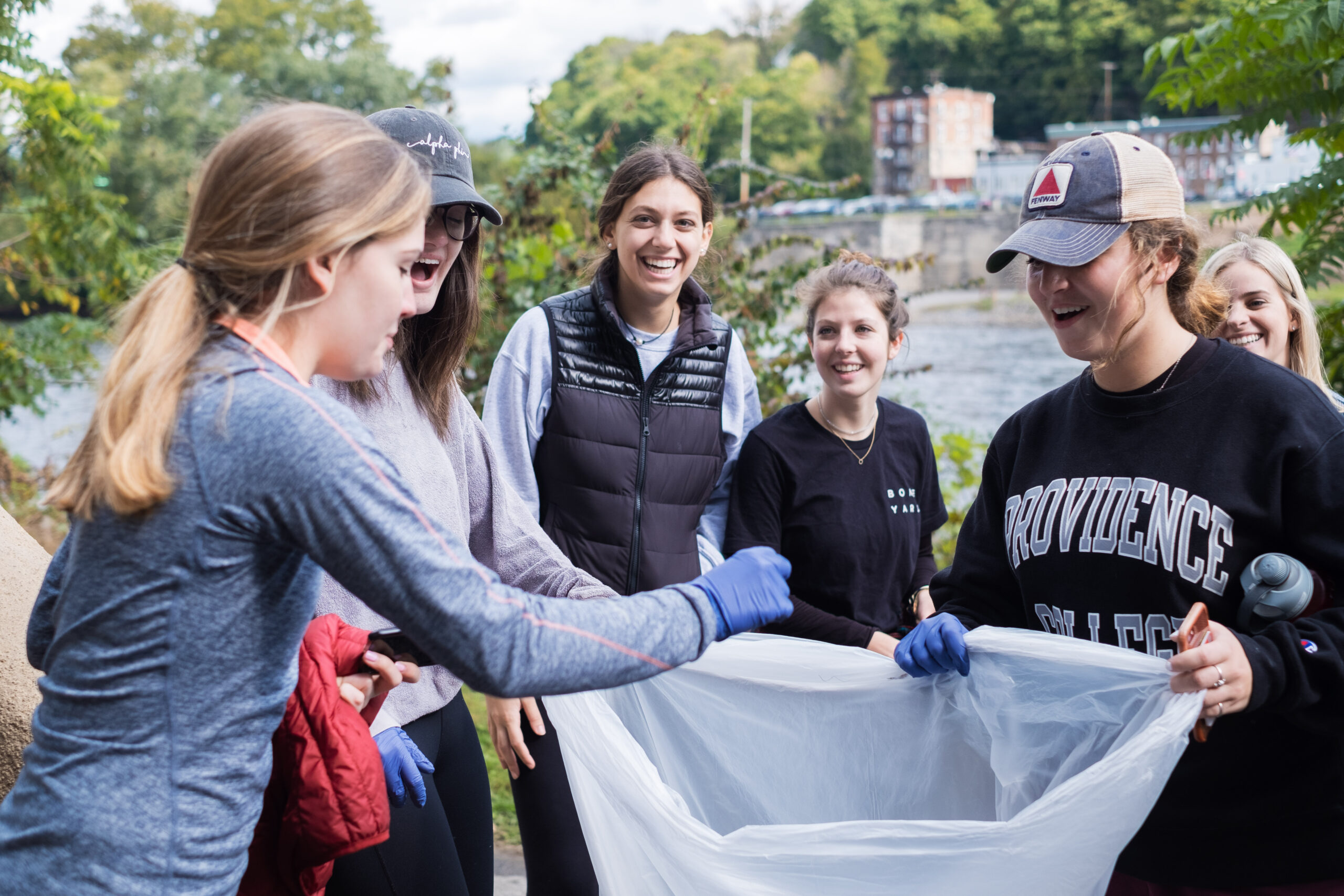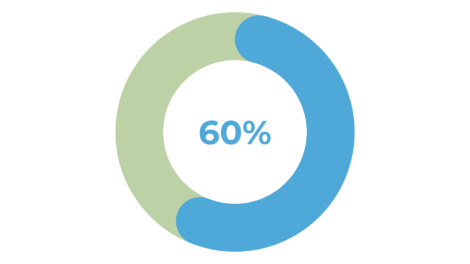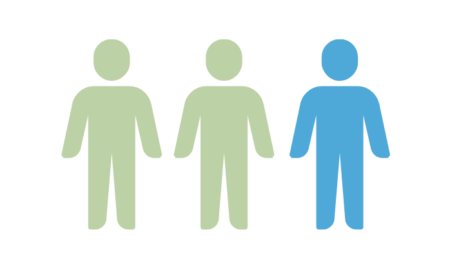Campus Sustainability Report 2022-2023: Cultivating a Living Lab
Lafayette’s campus operates as a living laboratory, providing students and faculty the opportunity to conduct research and explore and test new models of sustainable systems.
Hands-on learning experiences prepare our students to think critically and become engaged citizens ready to confront the social, economic and environmental challenges of the future.
Applied Learning
Students have the opportunity to explore Lafayette’s existing systems, analyze improvements, provide recommendations, and implement their solutions to sustainability challenges on campus.
- Interconnectivity: Students in environmental studies created “The Web,” an interactive art installation, to display a vision of an interconnected community and encourage engagement, interaction, participation, and reflection on the meaning of community, sustainability, and restoration.
- Exploring Emissions: The data club explored the topic of energy data using our on-site solar array data. Students in civil engineering analyzed energy data of key campus buildings to identify how energyaudits could influence future campus energy efficiency projects. Additionally, Remy Oktay ‘24, with support from Lafayette alumni, faculty, staff and students, launched Lafayette Gets Electric, a program to promote awareness of electric transportation, resulting in the first ever electric plane flyover of a sporting event at the 2022 Lafayette-Lehigh Rivalry Game.
- Zero Waste: Capstone mechanical engineering students created a recycling robot to educate the Lafayette community on how to better sort trash from recycling and improve contamination rates. Additionally, social entrepreneurship students studied local and peer institution thrift store models and surveyed students to provide recommendations for a permanent on-campus thrift store.
- Food & Farm: Mechanical engineering students designed an improved wash station for produce at LaFarm. Additionally, a civil engineering class designed a brochure to inform the local community about a new plant sale at LaFarm, which was launched for the first time in May 2023.
Student Involvement
Providing students a lived experience that matches their wide array of interests is at the core of Lafayette. Whether through living learning communities, like Tree House and GreenHouse, or our sustainability clubs, or events, Lafayette students can find their passion and make a difference.
- Student Government Launched 3 Campaigns: The Sustainability Committee worked on themes such as plastic water bottle elimination, commercial composting, incorporating sustainability into the college’s endowment, and a regalia reuse program, which distributed over 100 gowns to graduating seniors.
- Hosted 80+ Campus Events: The Office of Sustainability and various offices, departments, clubs and organizations hosted educational events focused on biodiversity, food sourcing, community service and education, waste reduction and more.
- 35+ Student Employees: The Office of Sustainability and LaFarm offered 35+ paid opportunities for students to engage in sustainability and apply their knowledge to environmental challenges on campus to advance Lafayette towards our sustainability goals, including a new Compost Team and several Fellowships.
- 3 Ne
 w Programs Promoted Sustainable Living: Through the new Eco Reps Leadership Program 36 Eco Reps led peer-to-peer educational initiatives reaching 51% of the campus population through 21 campus residences. Eco Reps implemented a Sustainable Living Certificate, certifying 65 students in its’ first semester. The Sustainable Punchcard Program was revitalized through Alumni engagement, allowing students to be recognized for participating in sustainability clubs, events, and behaviors on campus.
w Programs Promoted Sustainable Living: Through the new Eco Reps Leadership Program 36 Eco Reps led peer-to-peer educational initiatives reaching 51% of the campus population through 21 campus residences. Eco Reps implemented a Sustainable Living Certificate, certifying 65 students in its’ first semester. The Sustainable Punchcard Program was revitalized through Alumni engagement, allowing students to be recognized for participating in sustainability clubs, events, and behaviors on campus.
Integrating into Academics and Research
Lafayette faculty and students are identifying the synergies across disciplines when it comes to sustainability and taking their findings beyond the classroom. In a huge step toward integrating sustainability into the curriculum, a goal of our Climate Action Plan, the faculty have proposed including a “Sustainability” attribute in the Common Course of Study.
Immersive Experiences
- A two-week winter interim trip to New Zealand, taught by Dru Germanoski, professor of geology, Tamara Carley, associate professor of geology, and Christa Kelleher, assistant professor of civil and environmental engineering, explores the interdisciplinary nature of environmental science and intends to help students develop a strong understanding of how natural and developed environments come together, focusing on geology, water, climate, and life.
- During the winter interim, twenty students studied geological processes, atmospheric and oceanographic phenomena and biological evolution in Ecuador, led by David Sunderlin, associate professor and department head of geology, and Lawrence Malinconico, associate professor of geology and director of the Tech Clinic.
- The Engineering Division, the Hanson Center for Inclusive STEM Education, the Office of Sustainability, and the Women’s, Gender and Sexuality Studies Program joined together to send eight faculty/staff members and 35 students—representing 10 nations—to the United Nations headquarters in New York City for the 8th International Day of Women and Girls in Science Assembly. The conference brought together women in STEM with a focus on sustainability and global impact.
Connect with us
Office of Sustainability
746 High Street
Easton PA, 18042
sustainability@lafayette.edu

